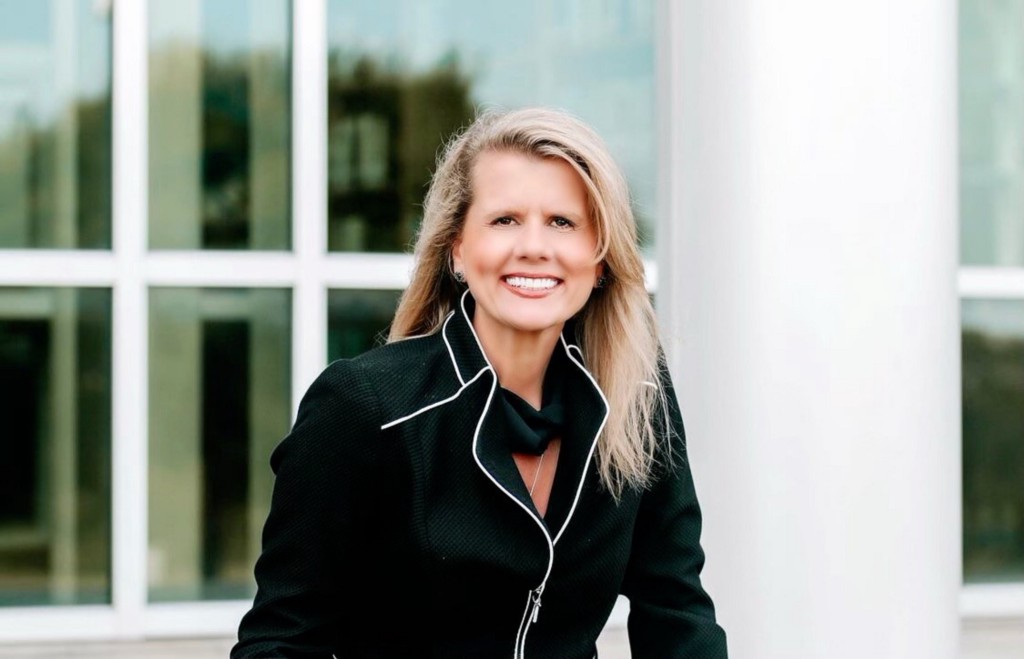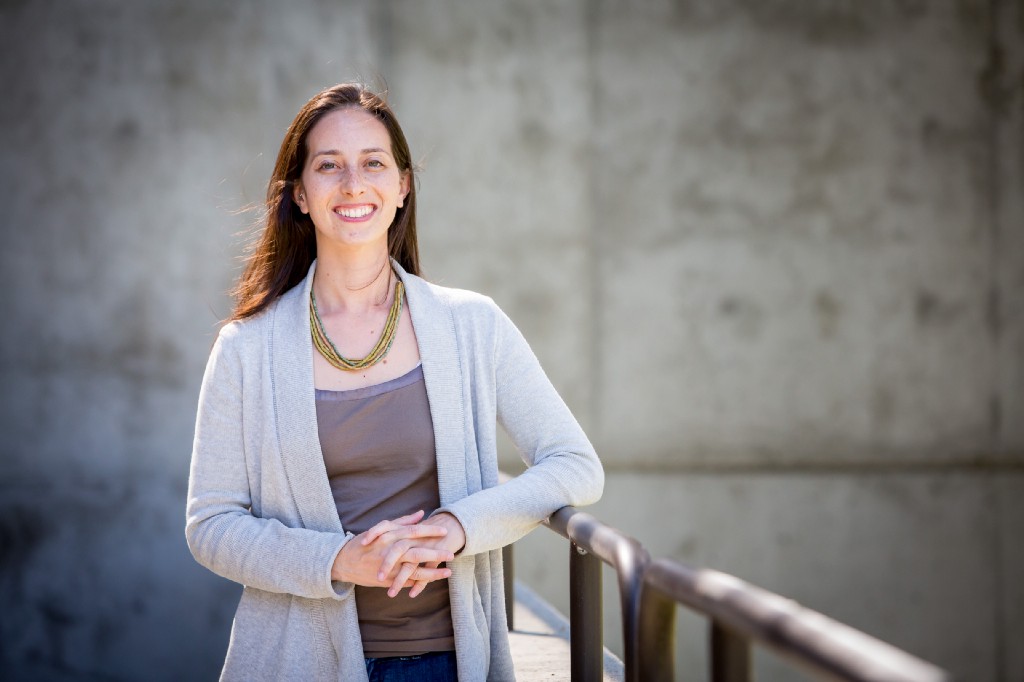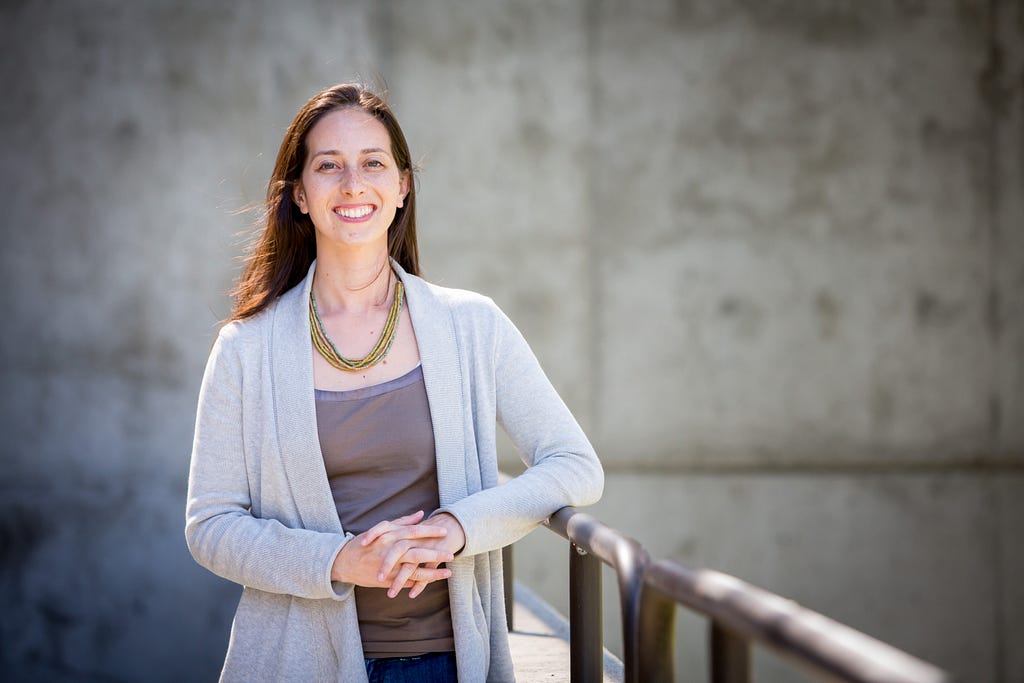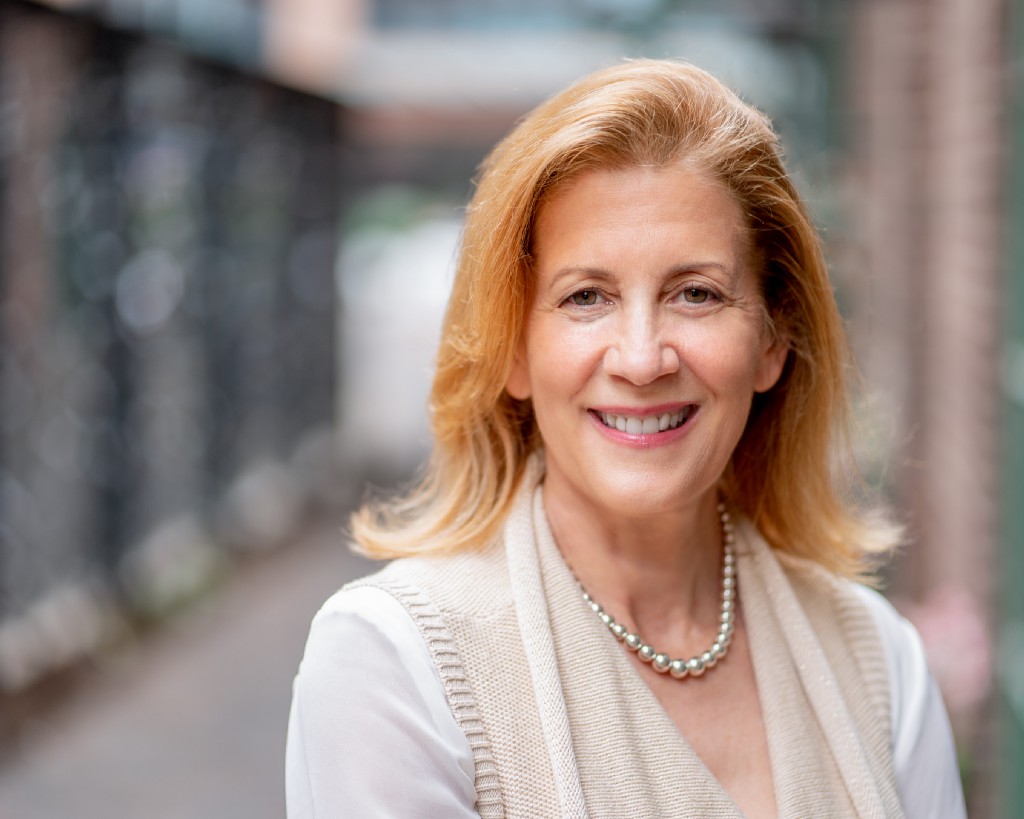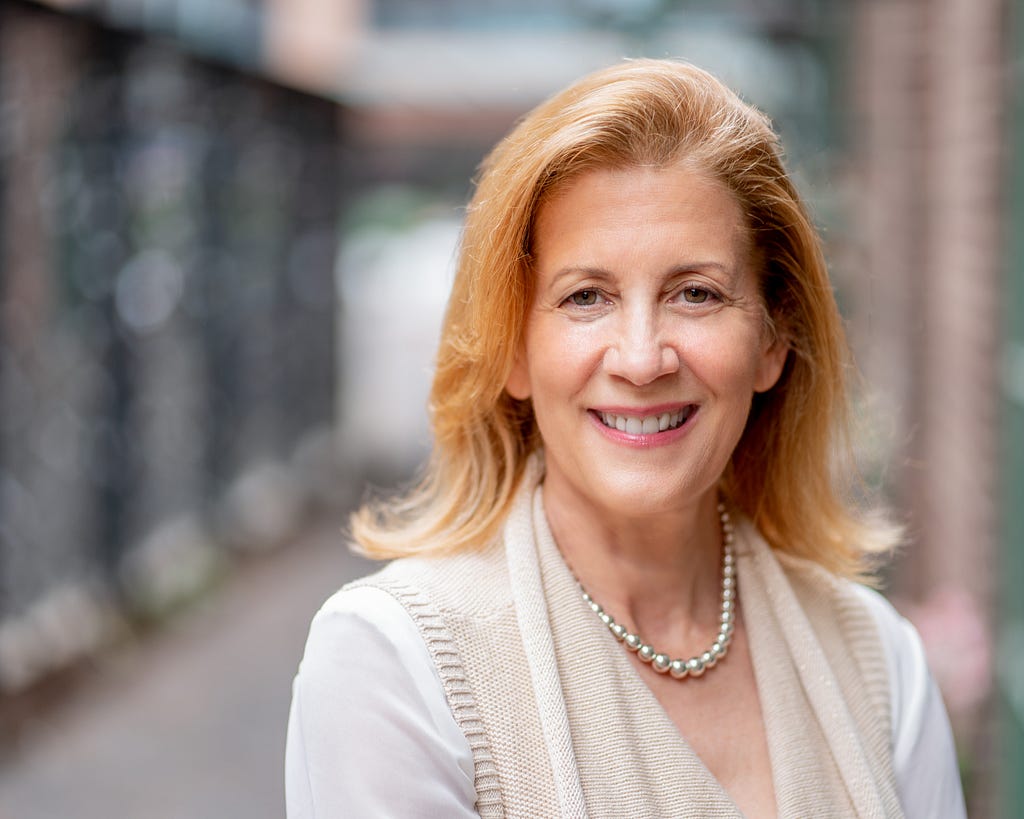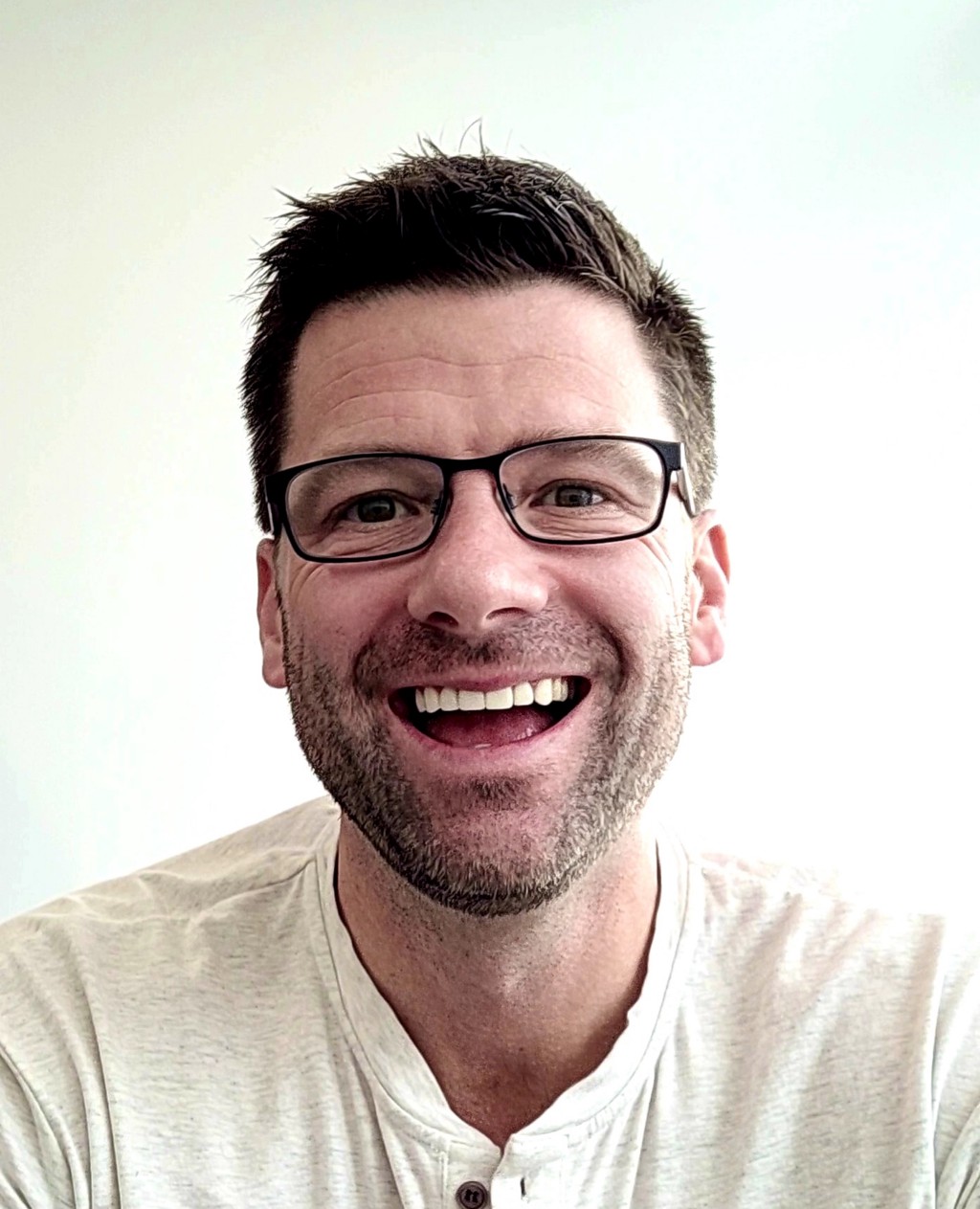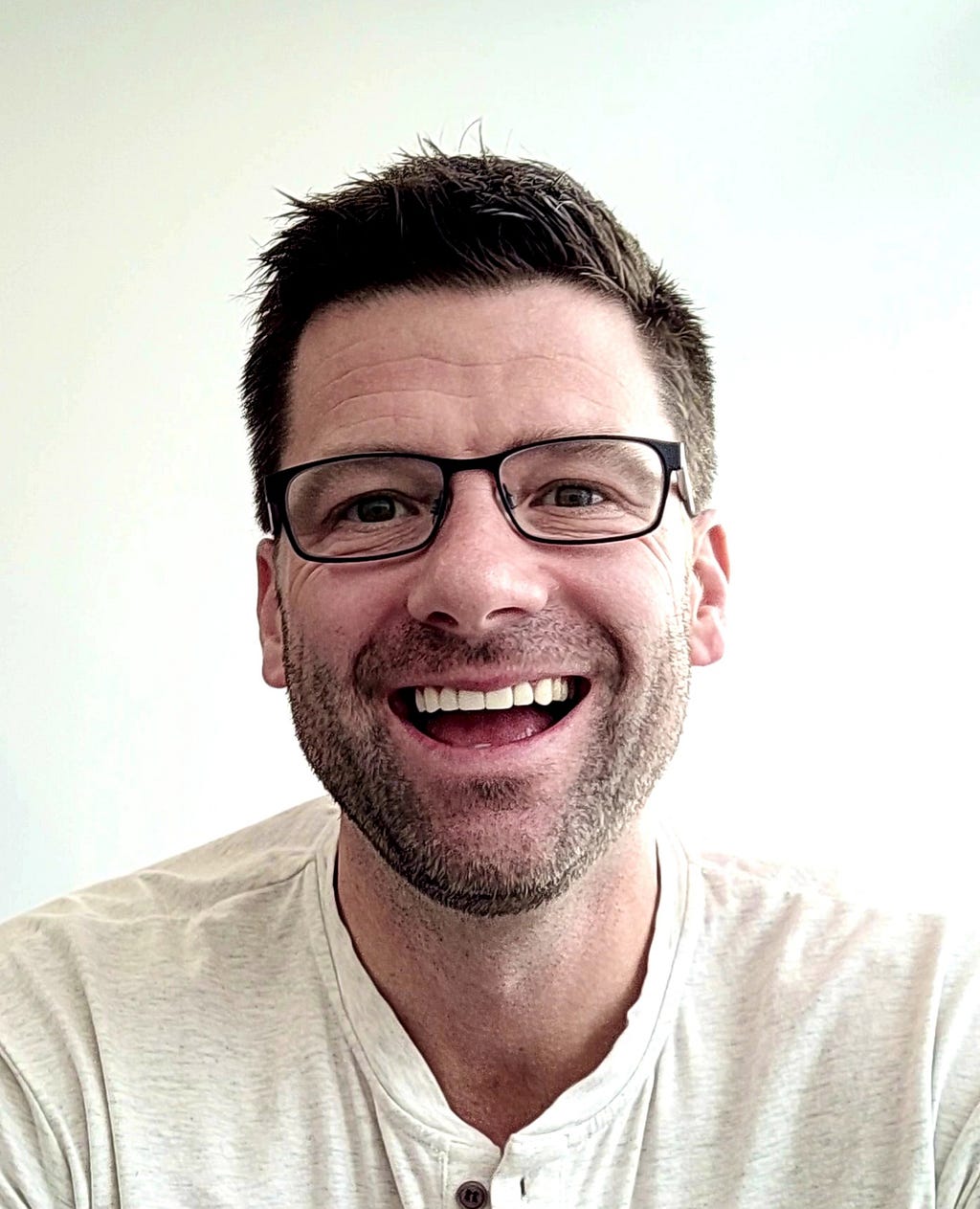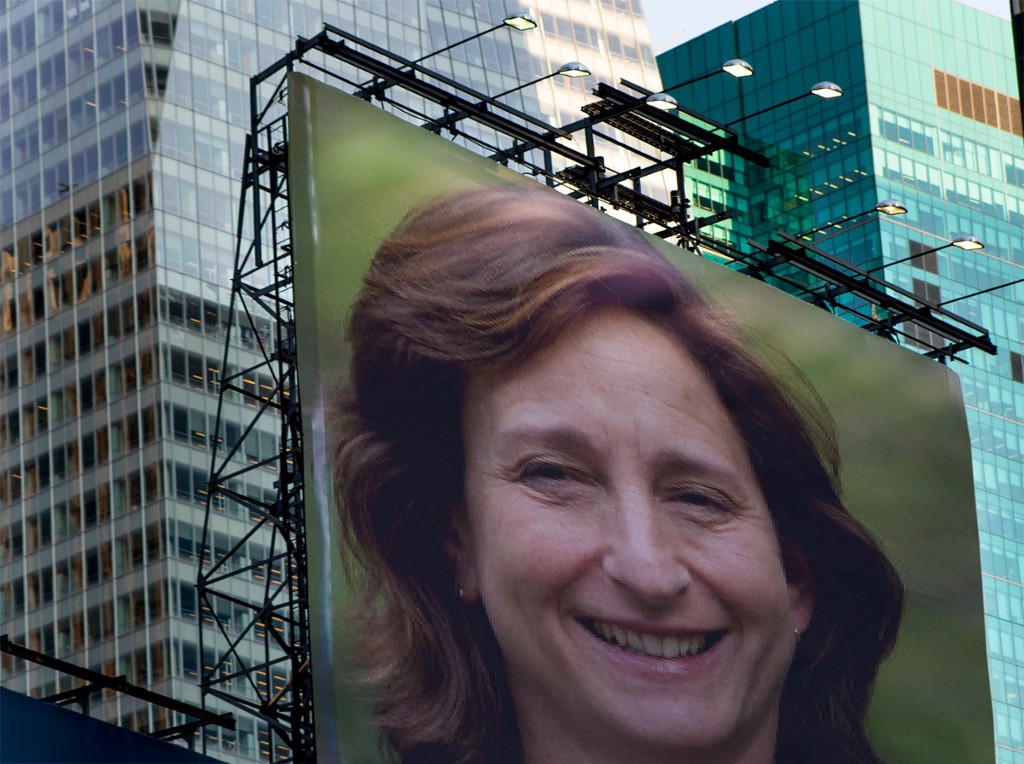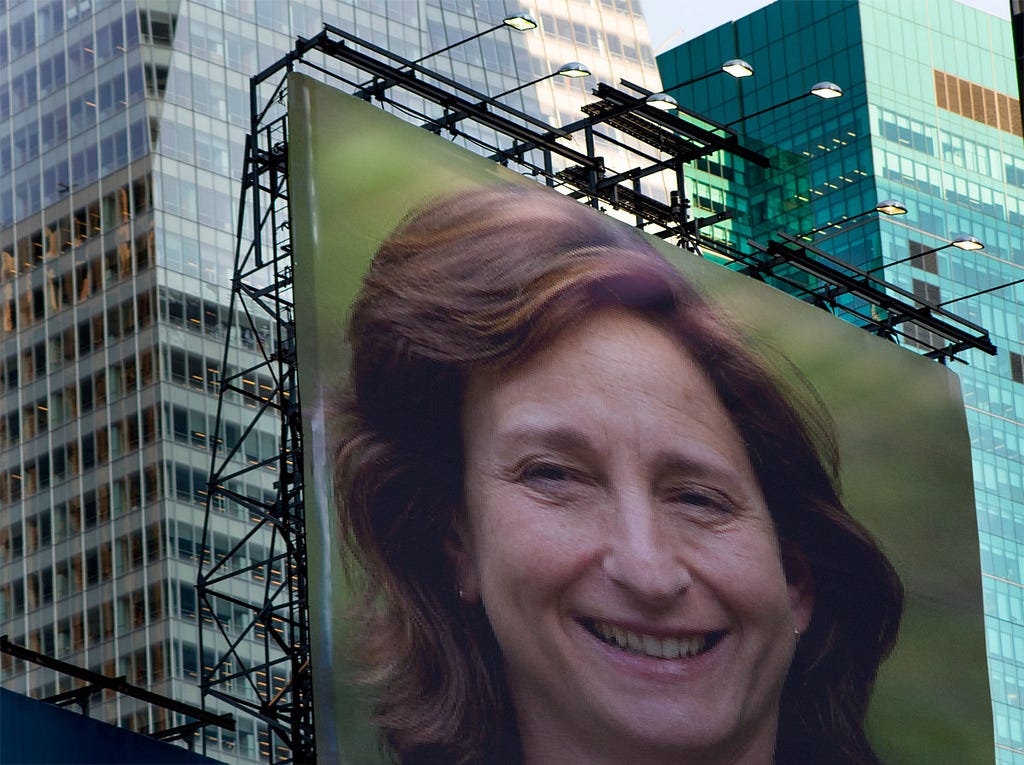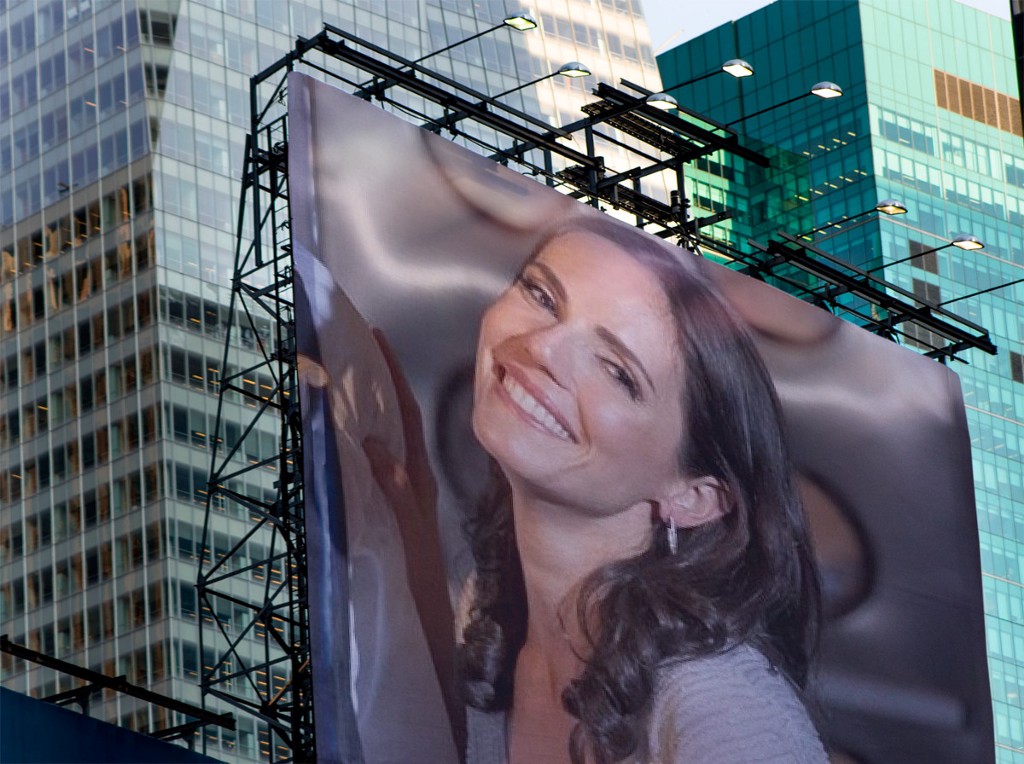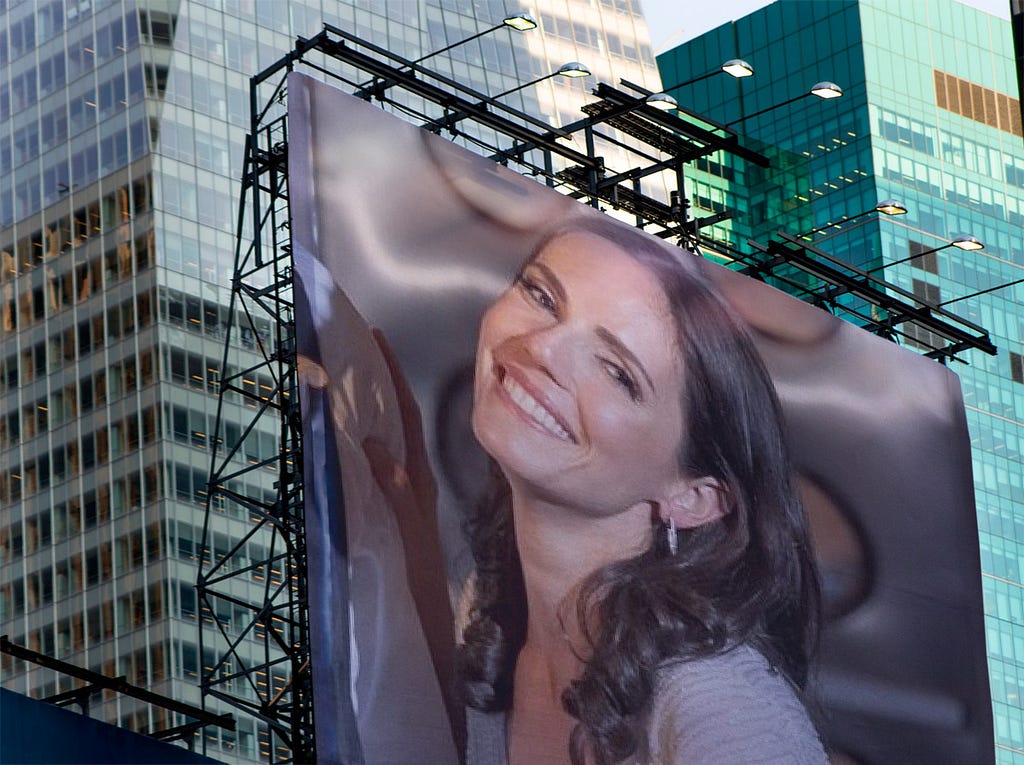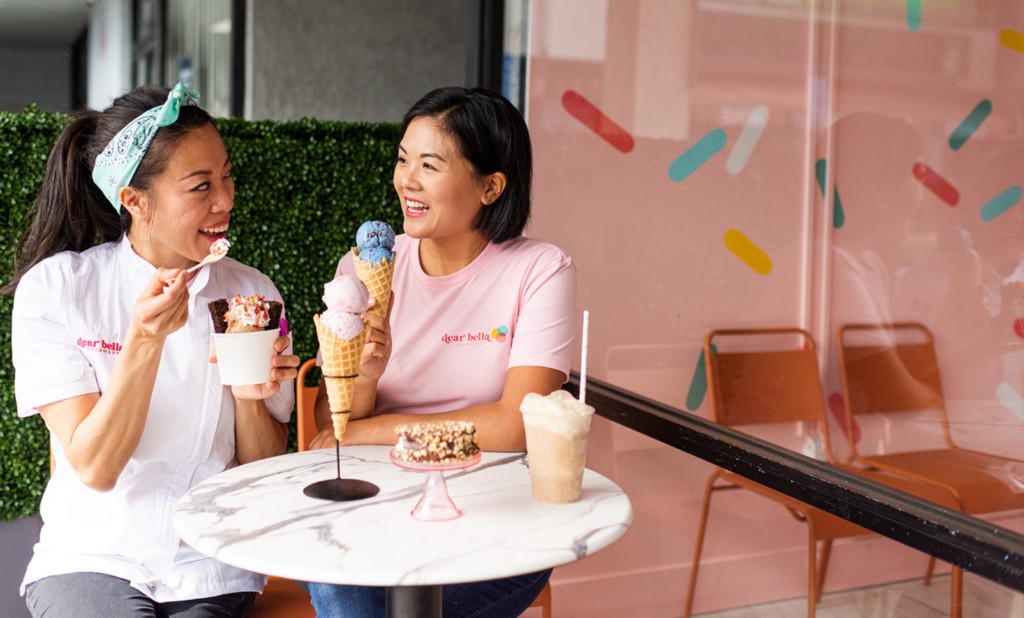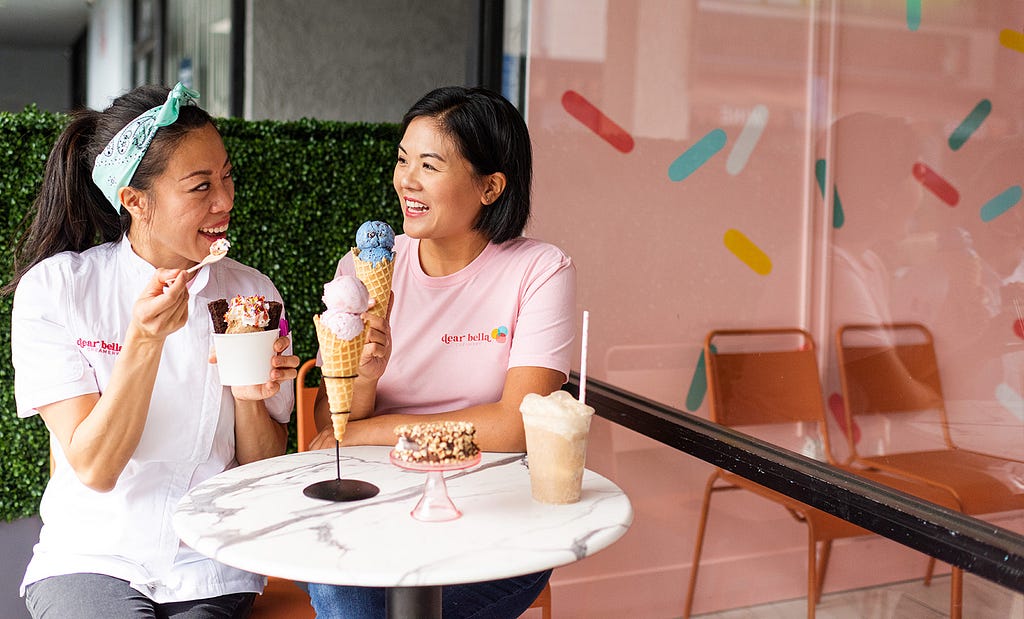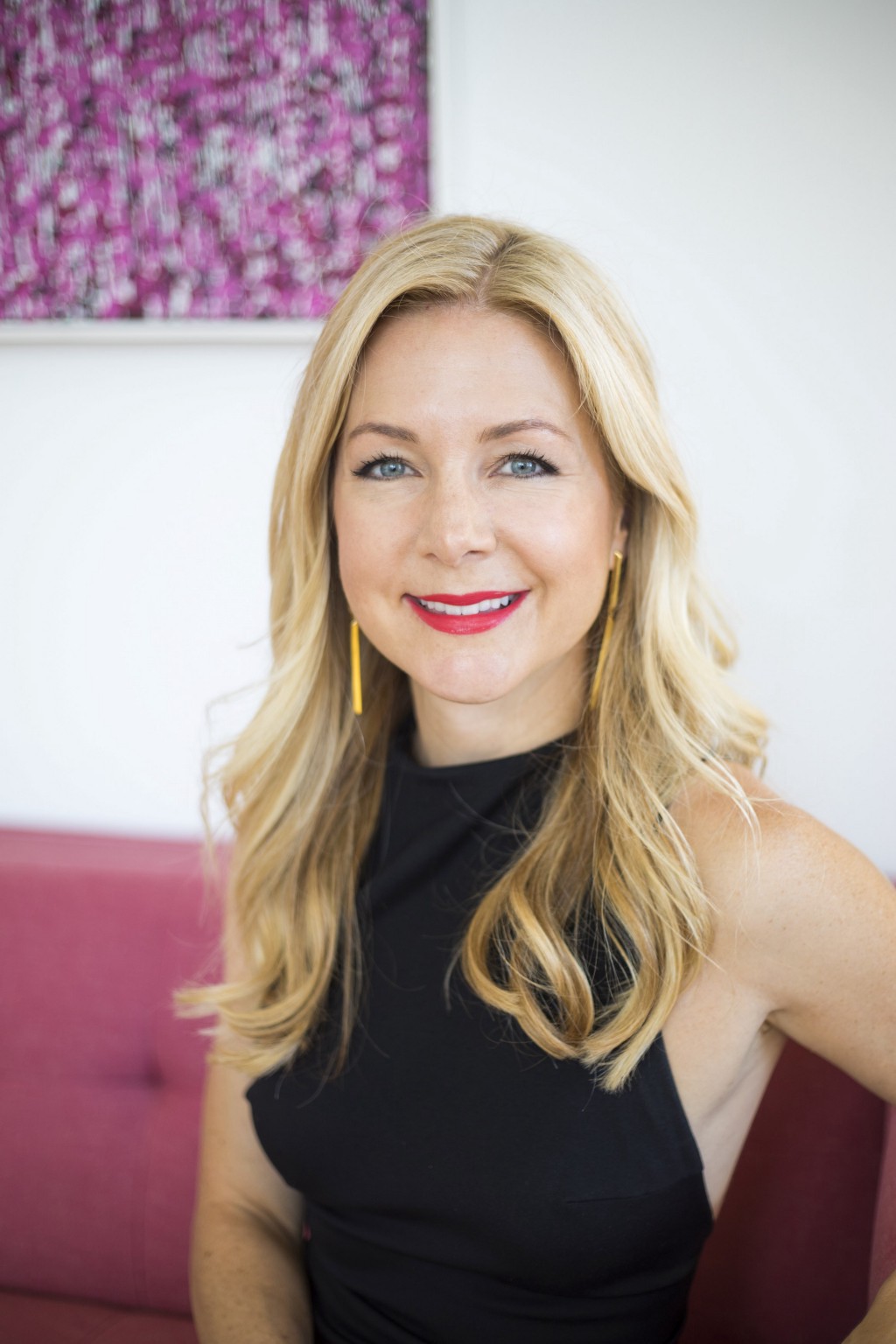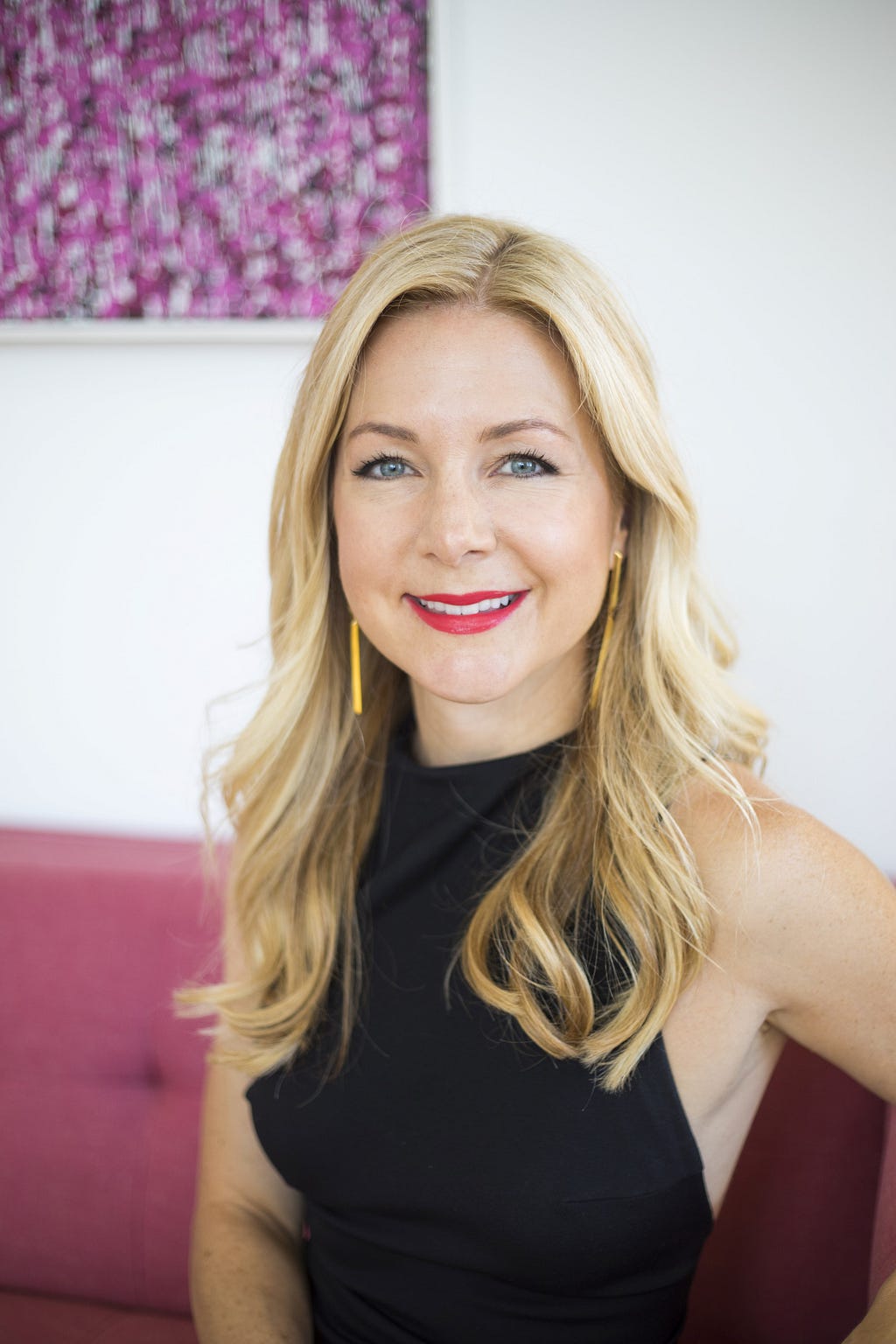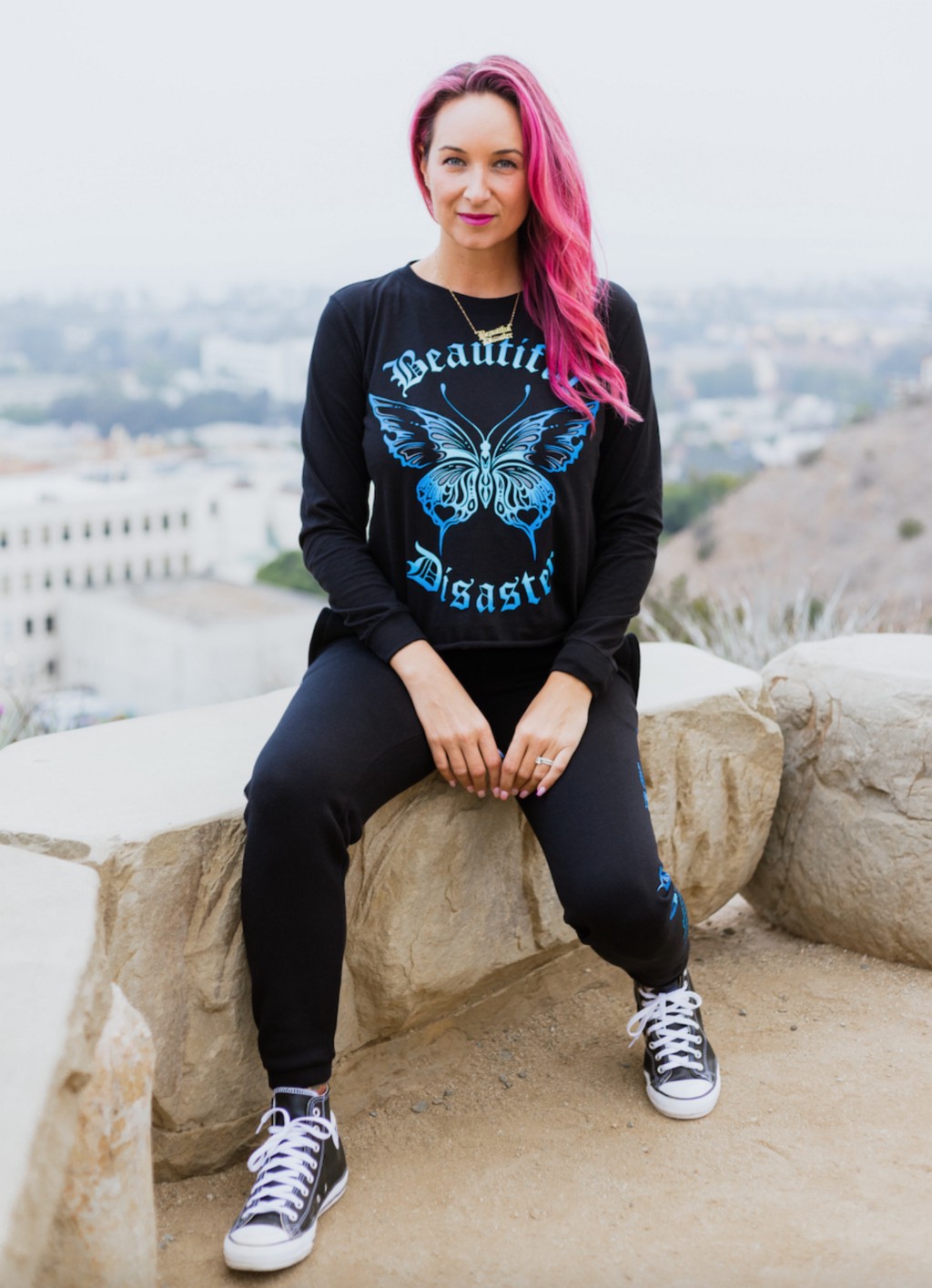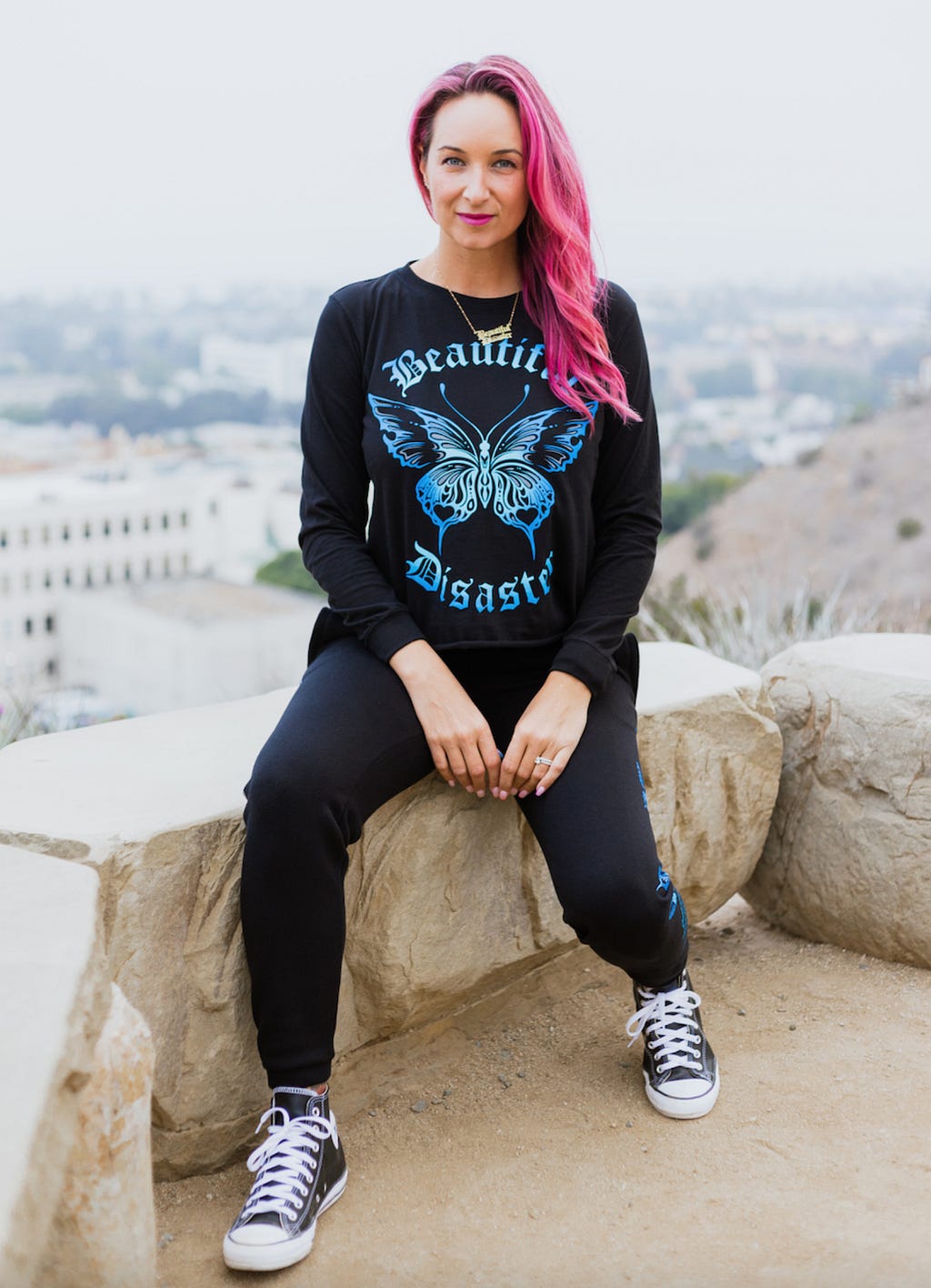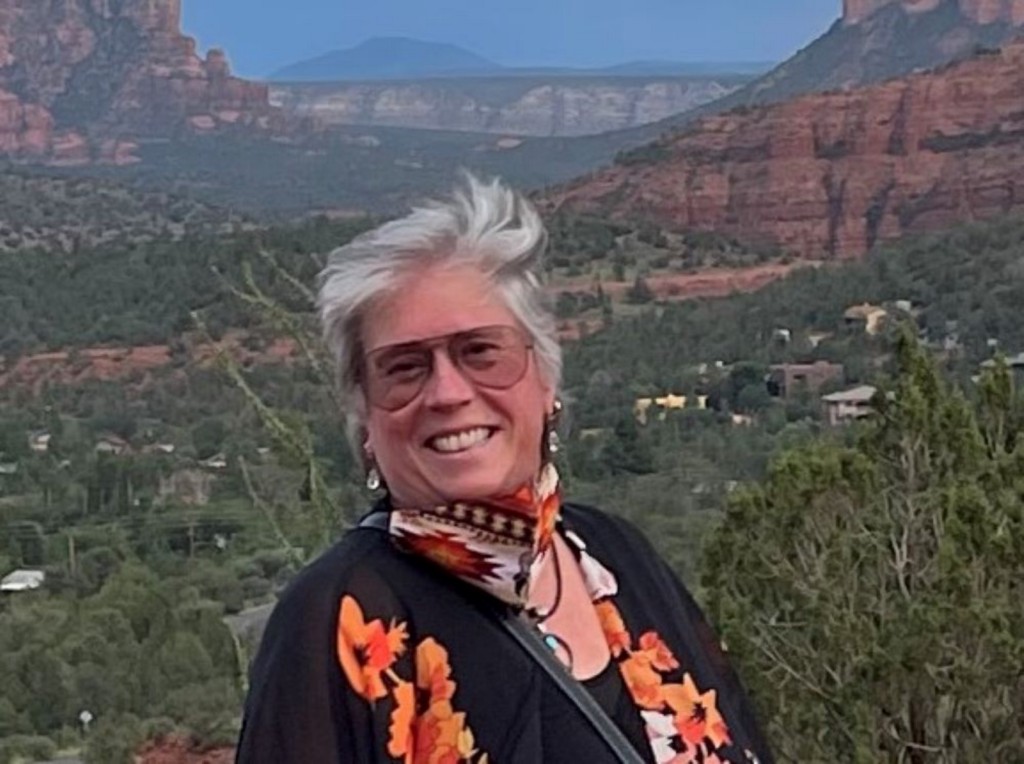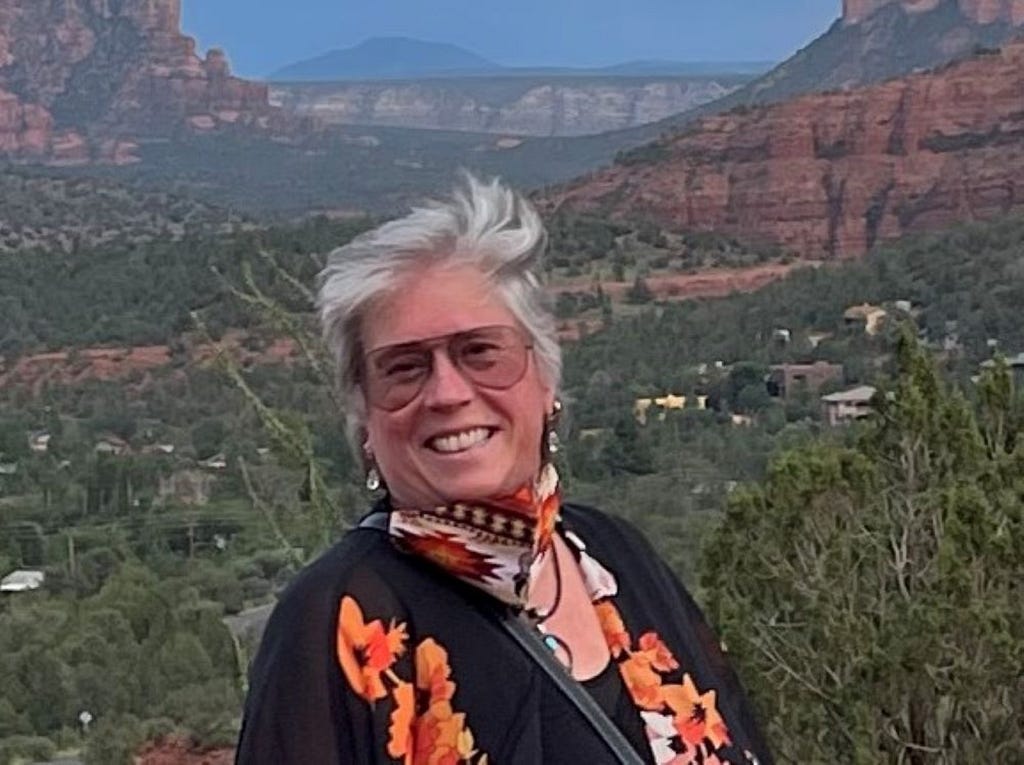Female Disruptors: Dawn F Landry of Authentizity On The Three Things You Need To Shake Up Your Industry
An Interview With Candice Georgiadis
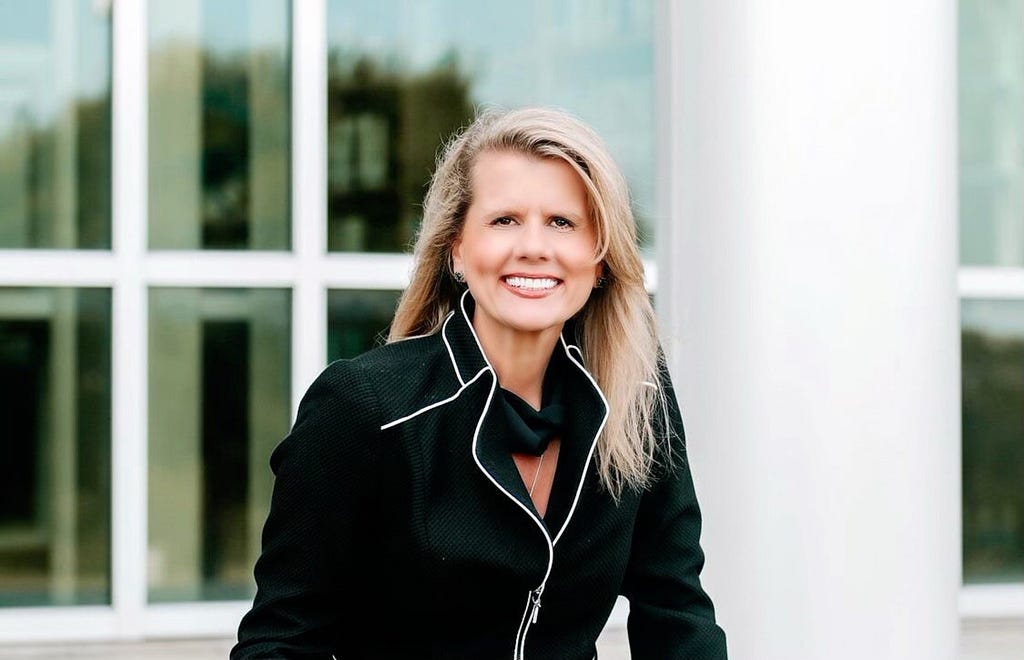
Careful Who You Hitch Your Wagon To It’s funny how the simplest forms of advice seem to stick with you for a lifetime. This message was delivered to me early in my career by one of the crustiest of construction professionals that I’ve ever come across. In regular terms, it means be careful with whom you align because others will judge you with that broad brush stroke. The advice was delivered as a gentle warning, and I’ve used it ever since as a gut check to make sure that the direction I’m heading towards is right for me.
As a part of our series about women who are shaking things up in their industry, I had the pleasure of interviewing Dawn F. Landry.
Bestselling author and award-winning business professional, Dawn F. Landry has spent over half of her 28-year career in Houston’s corporate real estate industry, excelling in leadership positions and as an executive in business development and marketing leadership positions within the region’s largest economic development organization, as well as international commercial construction companies.
In February 2017, Dawn founded Authentizity, LLC, as an independent B2B growth strategist and a Gallup-Certified CliftonStrengths® Coach to provide consulting, training, and coaching services that optimize technical teams’ engagement and productivity.
In August 2021, Dawn launched BD Dynamics, Empowering the Technical-Minded. It is self-guided, online business development course targeted to advance the intentionality and accountability of Doer/Sellers within the business development process.
Thank you so much for doing this with us! Before we dig in, our readers would like to get to know you a bit more. Can you tell us a bit about your “backstory”? What led you to this particular career path?
I’m someone who was, and still is, a big dreamer. I grew up in the 1970s in a small, rural town in south Louisiana. By general stereotypes and outward observations, I should never have achieved the successes that I can blessedly claim today.
I’ve spent over twenty-eight years as a business executive, singularly driven to advance in my profession. In the early part of my career when I was in my twenties and early-to-mid thirties, you might define me as restless and impatient. Things weren’t happening fast enough for me, so I’d move on to the next job within a couple of years.
Eventually, I found my home in Houston’s corporate real estate industry, excelling in business development and marketing leadership positions within the region’s largest economic development organization, as well as international commercial construction companies.
And just when I thought that I had settled in and had things figured out, another growth opportunity pressed and stretched me to the next level. In February 2017, I founded Authentizity, LLC, as an independent business growth strategist to assist companies with customized programs designed to advance their leadership proficiencies, team alignment, and outreach effectiveness.
Can you tell our readers what it is about the work you’re doing that’s disruptive?
In early 2017, as I began the early vision for what would eventually become Authentizity, there were two concepts that I knew for sure:
- There is only one “I” in busIness development, so helping technical professionals to Define Your “I” in Business Development™ was a foundational principle of my service offering; and
- A crucial component of the technical business development (i.e., Doer/Seller) process is to assist operations professionals with Identifying, Honing and Articulating™ their individual value to their clients, their companies, and most importantly, themselves.
Through the years, I have had the great opportunity to work with hundreds of operations and engineering-minded technicians to advance their confidence, competence, and success in business development by creating a process that parallels their project management acumen. My philosophy is that each of us has our own DNA that is reflected in our outreach and relationship style.
With a near three-decade B2B strategic growth career working alongside technical Doer/Sellers to achieve exponential sales success, I have leveraged lessons learned and best practices from those experiences to develop the framework for Authentizity’s new, online Doer/Seller Course: BD Dynamics, Empowering the Technical-Minded.
There is no other consultant/company that provides a self-guided course to help operations leaders become more adept and successful in the client relationship/selling functions of their roles.
By the end of the 15-module course, participants will have utilized the 13 interactive exercises to create their own business development process, which is individually customized to their unique diversity, skills, strengths, experiences, and even industry and company needs.
To excel as successful Doer/Sellers, technicians must first have a solid, proven, and repeatable reputation at the “doing” part of their operations roles. It requires for them (as the operations professional) to be able to develop credibility, composure, character, and reliability to carry and advance the relationship to the close of the sale, to consistently execute the project, and then to rinse and repeat so they can achieve future, sustainable client retention.
BD Dynamics has achieved advanced praise, reviews, and reception from technical leaders within many global, technical, service-based industries such as architecture, engineering, construction, etc. Visit www.bddynamics.com for further details.
Can you share a story about the funniest mistake you made when you were first starting? Can you tell us what lesson you learned from that?
The mistake that I made is not as much “ha ha funny” as it is amusing to me because I committed it several times throughout my career before I finally learned from it.
Specifically, I didn’t dream big enough and underestimated my ability to succeed. This manifested early in my career, as you might anticipate. However, it also showed up each time I endeavored to try something that stretched and pressed me.
Life makes sense in the rearview mirror. It wasn’t until I had witnessed my achievements through many variables and varieties of experiences that I learned to embrace the vortex of the unknown and walk through, trusting that all will work out like it needs to in the end.
We all need a little help along the journey. Who have been some of your mentors? Can you share a story about how they made an impact?
As strong, accomplished female professionals, we stand on the shoulders of all those phenomenal women who have come before us. My beautiful career would not be the same without the many mentors who poured their knowledge and lessons learned into me.
Specifically, I would like to state my deepest and most heartfelt gratitude for two of my professional mentors Cheryl Taylor Bowie and Pam Lovett. Each is the epitome of grace under fire personified.
They both taught me that we all need one another to thrive. Through their examples, I learned that:
- Women need to support and not tear other women down, and
- Men need to value women as their allies and their colleagues to collaborate and advance our organizations and ourselves.
- It is incumbent upon those of us who have achieved success to invest our time and share our experiences with the next generations of emerging women and men to move this forward.
Why young men you may ask? Because if we only focus on young women, then we will continue to perpetuate many of the silos that, unfortunately, still exist. At the end of the day, we all need one another to succeed.
Much work has been done, but there is still much to do. I dream of a day when we are cherished as just phenomenal people and are celebrated for our accomplishments, all-inclusive of their origins and sources.
In today’s parlance, being disruptive is usually a positive adjective. But is disrupting always good? When do we say the converse, that a system or structure has ‘withstood the test of time’? Can you articulate to our readers when disrupting an industry is positive, and when disrupting an industry is ‘not so positive’? Can you share some examples of what you mean?
Disruption and change go hand in hand. There are definitely times when changes are warranted, but we must be careful to not try and fix things that aren’t broken.
Great to greater strides are one thing, but we must make sure that we don’t “throw the baby out with the bath water” and destroy those things that distinguish and differentiate us and our uniqueness.
For instance, I’ve been witness to several company acquisitions. In these situations, larger firms have sought to enter a particular geographic market and rather than taking the time, energy, and efforts that it takes to grow organically, they have chosen to acquire locally.
In these situations, the firms have identified a great homegrown resource with a solid reputation, client, and employee base. They have completed their due diligence without flaw, implemented several year partner transition packages, etc.
So what could possibly go wrong?
Well, the larger company came in and allowed their acquired company to operate with aa business as usual for a time. Then, the larger organization began implementing their “one company” policies to try to make each office uniform.
In the end, the acquired company was so changed (resulting in stagnant sales and employee turnover) that it no longer resembled what had made it so desirable for purchase in the first place.
This is just one example of how disruption can work against its envisioned intent.
Can you share 3 of the best words of advice you’ve gotten along your journey? Please give a story or example for each.
- Careful Who You Hitch Your Wagon To It’s funny how the simplest forms of advice seem to stick with you for a lifetime. This message was delivered to me early in my career by one of the crustiest of construction professionals that I’ve ever come across. In regular terms, it means be careful with whom you align because others will judge you with that broad brush stroke. The advice was delivered as a gentle warning, and I’ve used it ever since as a gut check to make sure that the direction I’m heading towards is right for me.
- Your Name is Your Identity, For a Lifetime There is one constant piece of advice that I give to young professionals starting out in their career. Guard your name and reputation like gold. You can never get it back. It’s amazing to me how small a metropolitan city of six million people ultimately is. Word travels fast; both good and bad. If you have a solid name and reputation, it’s the foundation to build your career.
- You Never Have a Second Chance to Make a First Impression This quote has been attributed to both Oscar Wilde and Will Rogers. Whoever said it, nailed it. When you have appointments, be on time and dress for the occasion. If you don’t know how to dress for the occasion, ask someone. If you are attending a banquet, dining etiquette is important. If you are attending an evening event with clients, stick to a two-drink maximum. There are rules of the road if you want to get ahead in business. With the exception of the two-drink max, it’s basically all the stuff your mom fussed at you about when you were growing up. Heed her advice and you’ll be fine.
We are sure you aren’t done. How are you going to shake things up next?
Oh, this is such a great question. I’m not done by any stretch of the imagination.
My changeometer is very active during these ever-fluid times. I am always on the lookout to observe market shifts, take a pulse point and learn from past lessons, and then advance with a process or service offering that meets the current needs of my clients.
I don’t have a clear forecast of where/what that means, but I remain curious in my conversations, seeing opportunities to be flexible and adaptable.
I control my own destiny because my organization is nimble enough to move quickly to capitalize on events that even the best crystal balls couldn’t predict!
In your opinion, what are the biggest challenges faced by ‘women disruptors’ that aren’t typically faced by their male counterparts?
I don’t know because I have worked very hard not to compare myself to others male or female. I set my own course. When I’m competitive, it’s with myself.
Do you have a book/podcast/talk that’s had a deep impact on your thinking? Can you share a story with us?
Let’s face it, despite our best-laid plans, life rarely follows a predictable path. However, I’ve found that if you relax and breathe through the challenges that you will be pleasantly surprised by the outcomes.
Oh, but don’t be impressed by this wisdom I’m sharing! I wasn’t born with the trait of staying calm in a storm. I come from a long line of worrywarts. You could even call these wonderful people “Worry Warriors.” If there is something to worry about, they will find it. If there isn’t, they’ll conjure something up. They also welcome the company and opportunity to get you worked up right there with them!
Worrying is natural. However, I now choose a different path. I have found that, as soon as I become aware of my worrying, I can opt to go down that road, or I can simply focus on a new, more positive thought. Choosing the positive thought is a healthier option because I know deep down that ninety-nine percent of the things that my overactive imagination concocts never come to fruition. So then, why worry about it?
In 2016, I was told about Michael Singer’s book, The Surrender Experiment, and it changed my world. Throughout 2017, I began testing Singer’s Surrender Theory. In fact, it felt like because I had declared that I was surrendered and released to whatever presented itself before me, I was challenged even more, and I survived it all.
Living a life surrendered to whatever is put before you that day is the antithesis of the superimposed, strategic planning touted by Corporate America where I work daily. However, I have found that this radical trust is far more fulfilling, and I do accomplish more.
Things will likely not transpire in any manner that I can magnificently create in my head. It will all be better if I take my hands off the wheel.
You are a person of great influence. If you could inspire a movement that would bring the most amount of good to the most amount of people, what would that be? You never know what your idea can trigger. 🙂
I would like to encourage everyone to strengthen and build their curiosity muscles. It’s one of the many attributes to my success.
You see, when I was a child, questions sprang up in my head like popcorn, and my constant questioning drove most adults (especially my Mom) nuts. There was no real focus for the topic du jour; I was intrigued by the collection of knowledge.
That exploration for information was a challenge to keep up with, especially in the days when research was limited by whatever our 10-year-old encyclopedias relayed.
Without the Internet and Wikipedia, most of the answers I received from older folks were “I don’t know” and ‘don’t you know that much curiosity “killed the cat?”’ Fortunately, I didn’t let that hinder me or my desire for more and more data.
As I’ve progressed in my self-awareness, I now understand that it’s not knowing everything about everything that drives me. It’s more about collecting the information and storing it away in case I need it one day.
I used to say that I wished my brain was like a computer with a recycle bin so that I could delete some of the things that I deemed unnecessary. I’m now glad that it doesn’t because just when I think I won’t need to know something, such as the byproduct of sugarcane is called bagasse, then low and behold, it arises in a conversation!
And these nuggets of information are not just good for playing trivial pursuit.
My innate curiosity has done me well in my career as well. Especially as it relates to being a business consultant, having a natural instinct to know more ensures that you’re an active participant in conversations.
Generally, I prefer to listen rather than to speak, and when I speak, I like to ask pointed questions.
Can you please give us your favorite “Life Lesson Quote”? Can you share how that was relevant to you in your life?
“Do It Afraid” is a great quote that I’ve come back to many times throughout my career. It’s one of those phrases that is so simple, yet quite nuanced.
Early in my life and career, I would never have jumped off the deep end so willingly. However, that’s the beauty of aging wisely. It gives you the benefit of perspective.
Now, I think, “What’s the worst that can happen?” I then know (from my past experience reflections) that the thing my overactive imagination is concocting never comes to fruition and I choose not to give it my power.
I then jump off the deep end and enjoy the journey…
How can our readers follow you online?
Websites: www.bddynamics.com and www.authentizity.com and www.dawnflandry.com
LinkedIn: https://www.linkedin.com/in/dawn-landry-2a66b48
Facebook: https://www.facebook.com/authentizity
Twitter: @authentizity
Instagram: @dlandry101 and @armored_book
Blog: https://authentizity.com/blog/
Vlog: https://authentizity.com/vlog-spot/
Press (Authentizity): https://authentizity.com/news/
References (Authentizity): https://authentizity.com/references/
Press (ARMORED Book): https://dawnflandry.com/press/
This was very inspiring. Thank you so much for joining us!
Female Disruptors: Dawn F Landry of Authentizity On The Three Things You Need To Shake Up Your… was originally published in Authority Magazine on Medium, where people are continuing the conversation by highlighting and responding to this story.


